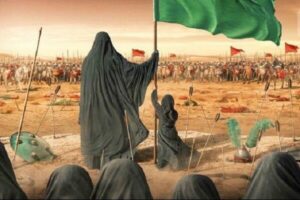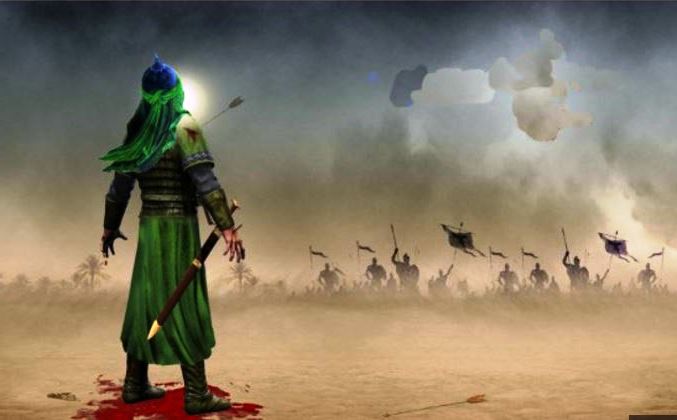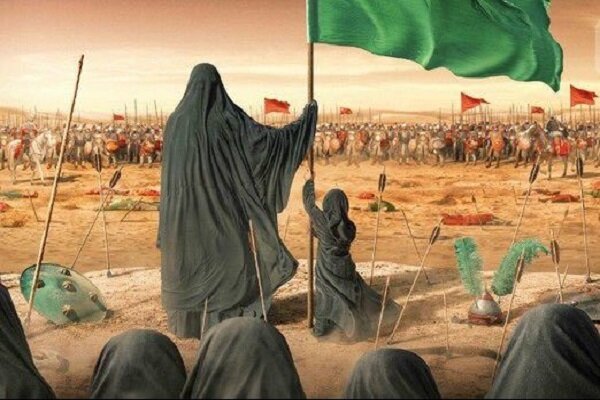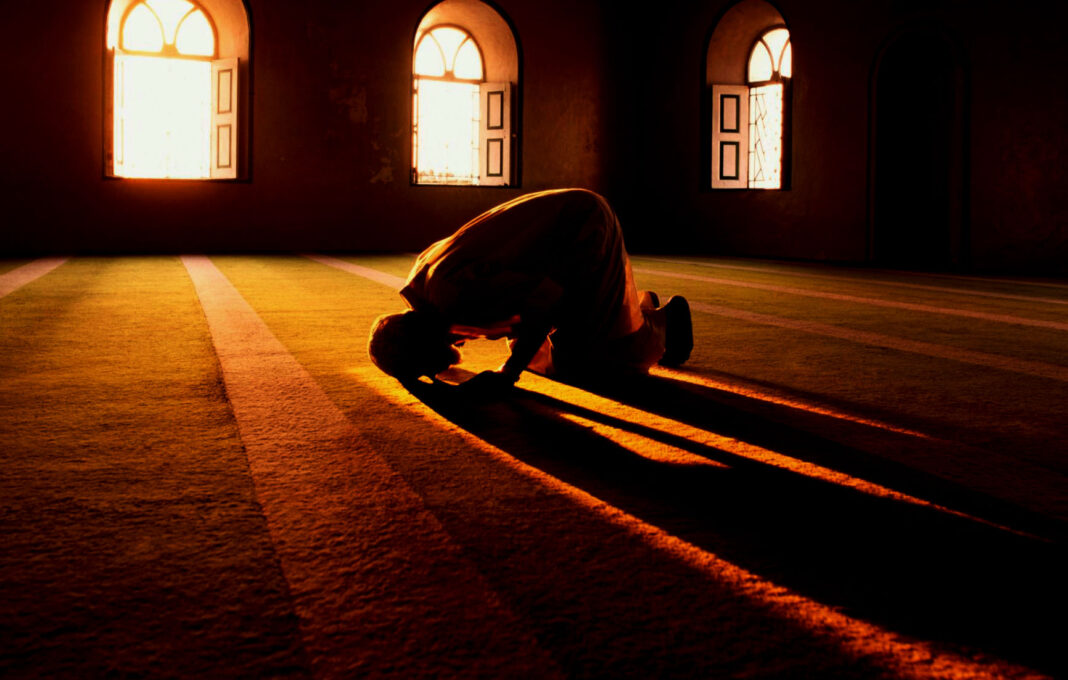The Battle of Karbala, a pivotal event in Islamic history, stands as a timeless tale of valor, sacrifice, and unyielding faith. It took place on the 10th of Muharram in the year 680 AD, in the plains of Karbala, present-day Iraq. This historic confrontation between a small group of devout followers of Prophet Muhammad’s grandson, Husayn ibn Ali, and the massive army of the Umayyad caliph, Yazid I, left an indelible mark on the collective memory of the Muslim world.
The individuals involved, especially the family members of Prophet Muhammad, displayed extraordinary courage and steadfastness in the face of overwhelming adversity. This blog post delves into the lives, sacrifices, and enduring legacy of these remarkable individuals.
The Prelude to Karbala
To understand the Battle of Karbala, one must first grasp the political and social context of the time. Following the death of Prophet Muhammad in 632 AD, leadership of the Muslim community was transferred through a series of caliphs. The Umayyad dynasty, beginning with Muawiya ibn Abi Sufyan, marked a significant shift towards hereditary monarchy. When Muawiya died in 680 AD, his son Yazid ascended to the caliphate, a move that was met with significant opposition from various factions within the Muslim community.
Yazid’s demand for allegiance from Husayn ibn Ali, the grandson of Prophet Muhammad and a prominent figure in the Muslim community, was the catalyst for the events leading to Karbala. Husayn, known for his piety, justice, and unwavering commitment to truth, refused to pledge allegiance to Yazid, whom he viewed as an unjust ruler. This refusal set the stage for a confrontation that would etch Husayn’s name in history as a symbol of resistance against tyranny.
The Journey to Karbala
Husayn, along with his family and a small group of loyal followers, embarked on a journey from Mecca to Kufa in response to the calls for support from the people of Kufa, who were discontented with Yazid’s rule. However, upon reaching Karbala, Husayn and his companions found themselves surrounded by Yazid’s formidable army, numbering in the thousands.
Despite being vastly outnumbered, Husayn and his followers remained resolute. They set up camp on the banks of the Euphrates River, but Yazid’s forces soon cut off their access to water. The scorching heat of the desert and the lack of water began to take a toll on Husayn’s camp, particularly affecting the children and women.
The Martyrs of Karbala
The Battle of Karbala is remembered not only for its tragic outcome but also for the remarkable individuals who stood by Husayn’s side. Each member of Husayn’s family and his followers exhibited extraordinary bravery and an unwavering commitment to their cause. Here are some of the notable figures:
Husayn ibn Ali
Husayn ibn Ali, the central figure of the Battle of Karbala, was the son of Ali ibn Abi Talib and Fatimah, the daughter of Prophet Muhammad. Known for his profound spirituality and devotion to justice, Husayn’s refusal to pledge allegiance to Yazid was rooted in his commitment to upholding the principles of Islam.

On the day of Ashura, Husayn demonstrated unparalleled courage and leadership. Despite the overwhelming odds, he fought valiantly, defending his principles and the honor of his family. His martyrdom is commemorated annually during Muharram by millions of Muslims worldwide, particularly by the Shia community, who regard him as an eternal symbol of resistance against oppression.
Abbas ibn Ali
Abbas ibn Ali, Husayn’s half-brother, is revered for his loyalty, bravery, and selflessness. Known as “Abu al-Fadl” and “Qamar Bani Hashim” (the moon of the Hashim clan), Abbas played a crucial role in the Battle of Karbala. His most famous act of valor was his attempt to fetch water for the parched camp of Husayn, a mission during which he lost both his arms before being fatally struck.
Abbas’s dedication to his brother Husayn and his ultimate sacrifice have made him a symbol of unwavering loyalty and courage. His shrine in Karbala is a site of pilgrimage for many who seek inspiration from his legacy.
Ali Akbar ibn Husayn
Ali Akbar, the eldest son of Husayn, was noted for his striking resemblance to Prophet Muhammad in both appearance and character. On the day of the battle, Ali Akbar fought with remarkable bravery, embodying the virtues of his grandfather. His death was a devastating blow to Husayn and the entire camp, symbolizing the profound loss endured by the Prophet’s family.
Ali Asghar ibn Husayn
Ali Asghar, the youngest son of Husayn, was just an infant at the time of the battle. His tragic death, while cradled in his father’s arms and pleading for water, epitomizes the brutal nature of Yazid’s forces and the profound suffering endured by Husayn’s family. The poignant image of the innocent child’s martyrdom continues to evoke deep emotional resonance in the hearts of believers.
Zainab bint Ali
Zainab bint Ali, the sister of Husayn, played a pivotal role in the aftermath of the Battle of Karbala. Known for her eloquence, strength, and resilience, Zainab emerged as the voice of the survivors. After the battle, she delivered powerful speeches in the courts of Yazid and Ubayd Allah ibn Ziyad, condemning their actions and preserving the memory of Karbala for future generations.
Zainab’s unwavering faith and courage in the face of immense suffering have made her a towering figure in Islamic history, particularly among Shia Muslims, who regard her as a symbol of defiance and steadfastness.
Qasim ibn Hasan
Qasim ibn Hasan, the young son of Hasan ibn Ali and the nephew of Husayn, also displayed extraordinary bravery at Karbala. Despite his tender age, he insisted on joining the battle to support his uncle. His valiant death is remembered as a testament to the deep familial bonds and the collective sacrifice of Prophet Muhammad’s family.
The Aftermath and Legacy
The immediate aftermath of the Battle of Karbala was one of profound sorrow and mourning. The surviving members of Husayn’s family, primarily women and children, were taken captive and paraded through the streets of Kufa and Damascus. However, their suffering did not end their mission. The eloquent and courageous speeches delivered by Zainab bint Ali and others kept the memory of Karbala alive and exposed the tyranny of Yazid’s regime.
The legacy of Karbala has transcended time and geography, becoming a central element of Shia identity and a powerful symbol of resistance against injustice. The annual commemoration of Ashura, marked by mourning rituals, processions, and reenactments of the battle, serves as a reminder of the values of sacrifice, justice, and steadfastness.
Conclusion
The story of Karbala and the individuals of Prophet Muhammad’s family who participated in this historic battle continue to inspire and resonate with millions around the world. Their unwavering commitment to truth and justice, even in the face of certain death, serves as a timeless lesson in the power of faith and the human spirit. As we reflect on the events of Karbala, we are reminded of the profound impact that a small group of individuals can have in challenging tyranny and upholding the principles of justice and righteousness.
The Battle of Karbala, with its tales of heroism, sacrifice, and resilience, remains a beacon of hope and inspiration for those who strive for a just and equitable world.



